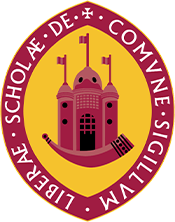Humanities
The humanities department covers business studies, geography, history, psychology and religious studies – meet the teachers.
Business Studies and Economics
Covering business, economic and financial studies. Beginning at GCSE level students learn what is required to establish a small business and examine issues that businesses face. A-Level students can also opt for business studies or economics.
Business and economic studies support sessions are available on Tuesday and Thursday lunchtimes as well as additional resources that go beyond the specification to challenge students. The Young Enterprise Company Programme and the IFS Investor Challenge is available to all GCSE students.
Curriculum Map - Business Studies
Geography
Inspiring students to explore the world around them, develop geographical skills and their knowledge of globally significant places. GCSE and A-Level geography options are very popular and has a stimulating blend of traditional and contemporary content.
A-Level students act as mentors to GCSE students and staff run lunchtime support sessions in the run up to final exams. Students are challenged to read geography periodicals in the library or conduct independent research online.
Visits are organised for students to further their learning, Year 7 visit a local farm to study changes in the industry, GCSE students visit Hull to support their urban studies and Skegness to support their coastal studies. A-Level students stay in Whitby to explore North Yorkshire, visit Lincoln to compare city changes and attend an annual conference organised by the Lincoln Branch of the Geographical Association. The Geography Department also enters two GCSE teams for the national World Wise Quiz.
Follow QEGS Geography on Twitter.
History
Taught from Year 7 and one of the most popular subjects at GCSE and A Level. GCSE students study Elizabethan England, Superpower Relations and the Cold War 1941-91, Nazi Germany and The History of Medicine. A-Level students study Russia 1855-1964, the English Revolution 1625-1660 and the Rise of a Superpower: US foreign policy 1890-2000.
We run history lunchtime help clinics and mentoring programmes to assist students with their studies. We also have a lunchtime History Club for enthusiasts, which last year included a visit by an academic from BGU to carry out a field survey state of the art ground-penetrating radar. Students are challenged with additional reading and resources which can be found on display in the history teaching rooms alongside adverts for local archaeology days, lectures, exhibitions and essay competitions. Last year one of our students was awarded "highly commended" for the University of Sheffield's sixth form essay prize competition and this year one of our students has won the Cromwellian Society sixth form essay prize.
Re-enactors have visited the school to provide talks and demonstrations about the Civil War to Year 8 students and we are planning a similar activity this academic year at the Newark Civil War Centre. A-Level students have attended Sixth Form Conferences on the English Revolution in Lincoln, Huntingdon and Newark in recent years as well as benefiting from visiting speakers giving talks and workshops on A-Level topics.
Psychology
An option only available to A-Level students covering psychological approaches to explain human behaviour; the behaviourist, cognitive, biological, social learning theory, psychodynamic and humanistic approaches. The course explores human memory, nature vs nurture, ethics, gender and cultural bias, different types of social influence and how to use theories to treat psychological conditions like depression, OCD and phobias. Research methods are taught and evaluated throughout the course.
Upper Sixth Form students mentor Lower Sixth Form with a buddy system, groups meet regularly to share resources. Staff are also available to support, especially with guided revision towards exams. Students are challenged with additional reading and resources like listening to BBC Mind or documentaries like secrets of the human brain.
Students have opportunities to conduct ethical research throughout the course using other members of the school community. There is also an organised trip to BGU to explore further psychology study.
Take a video crash course in psychology or check out this resource for independent learning.
Religious Studies
Taught from Year 7 and available as an option at GCSE and A Level. Students learn about a wide range of religious beliefs and practices, drawing inspiration and examples from faith and non-faith traditions. GCSE students also attend one RS Wellbeing lesson per week, exploring moral, social, spiritual, cultural, ethical and philosophical issues that may affect young people.
Visits are usually organised throughout the year, including a Year 7 visit to the local church to study key features of the building, a Year 10 visit to a local mosque and Sixth Form students can attend lectures in Cambridge from prominent philosophers and ethicists, and visit a Hindu mandir in Leicester.
A-Level students may act as mentors to GCSE students and additional support sessions are also available as required. Students are challenged with additional reading and resources which can be found on display in the main Religious Studies teaching rooms.
 Queen Elizabeth's Grammar
School
Queen Elizabeth's Grammar
School